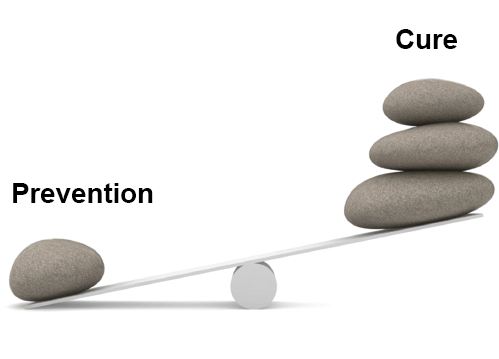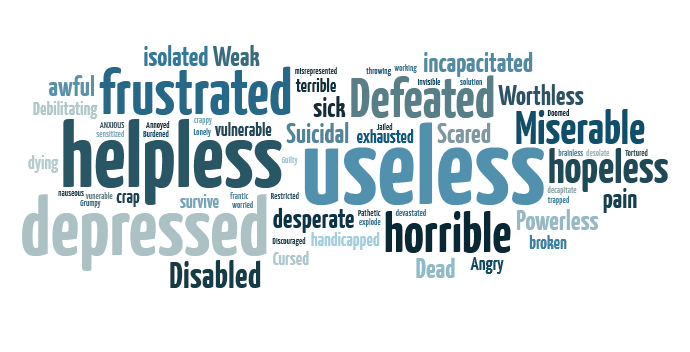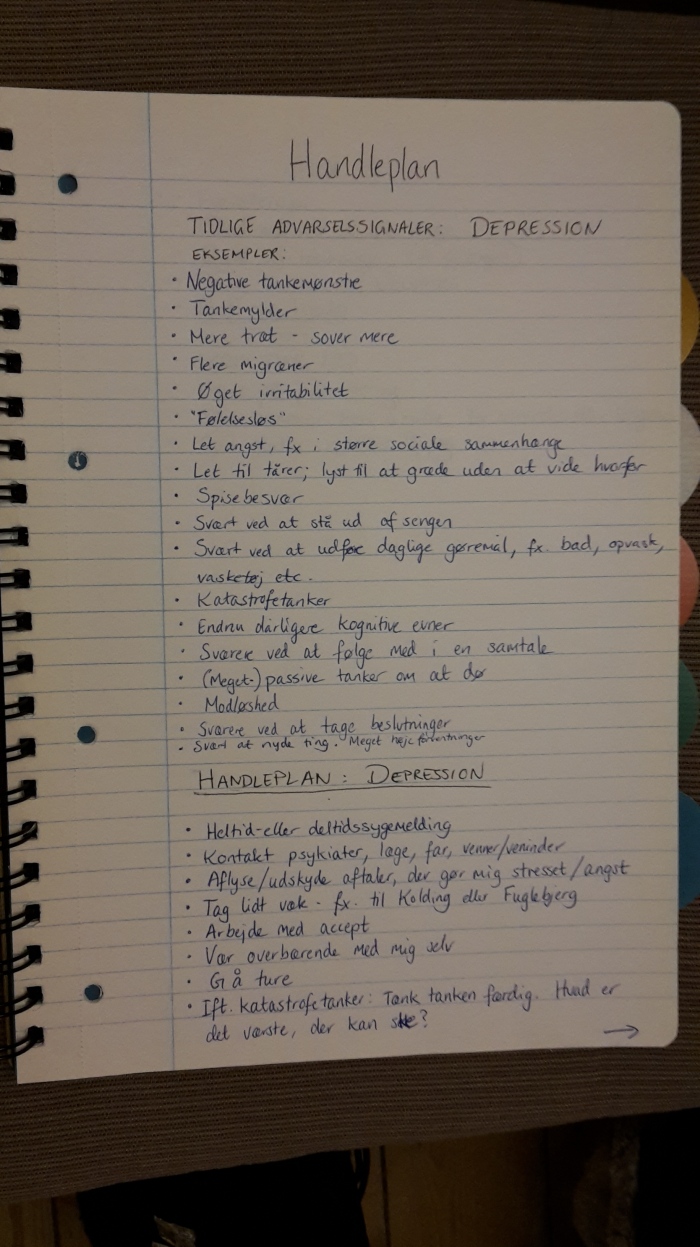Disclaimer: this was originally posted on my friend Christine’s blog,
C.A.L.T
Post was written by me as a guest blogger.
Don’t feel like reading? Listen to the audio version here:

First, I would like to thank Christine for allowing me to use her platform to share this “story,” I guess you could call it, with you all.
Now. A lot of you – referring to friends and family members – already know this about me. Be you a close friend or an attentive, curious acquaintance, there is a high possibility that you already know. I’ve been very honest and vocal about this ever since I was diagnosed. It’s obviously not a conversation starter – unless it’s in a relevant forum – but it’s important for me to talk about. Mainly because so many people either don’t know what it is, are misinformed, or, as it turns out, actually know someone with a mental disorder, or have suffered/are suffering from a disorder themselves.
In Spring, 2016, I was diagnosed with Bipolar Affective Disorder (previously known as manic-depressive disorder, now referred to as bipolar) – type II.
Most of you are probably thinking: ‘what the heck does that mean? And why is it important for you to share?’ Well, that’s what I’m here to tell you!
Now, we all know that obtaining knowledge on something is only a Google-search away. Typing in “bipolar” in the Google search-bar will bring you plenty of hits. Here’s just a few examples:
https://www.mayoclinic.org/diseases-conditions/bipolar-disorder/symptoms-causes/syc-20355955
https://www.clinical-partners.co.uk/for-adults/bipolar
https://www.rcpsych.ac.uk/healthadvice/problemsanddisorders/bipolardisorder.aspx
And then some in Danish, for good measure:
http://depressionsforeningen.dk/hvad-er-bipolar-lidelse/
http://www.psykiatrifonden.dk/viden/diagnoser/depression/bipolar-lidelse/bipolar-lidelse.aspx
https://pro.medicin.dk/Sygdomme/Sygdom/318434
You’ll see that much of what I have written below will reflect the descriptions in abovementioned articles. However, it will also include my own thoughts, experiences, and feelings.
Here we go.
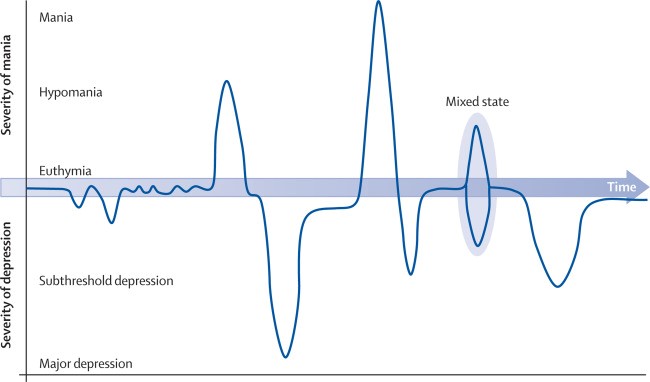
Bipolar? Like Bradley Cooper in “Silver Linings Playbook?”
I was shocked. Or, as the kids call it these days, shook. I started tearing up as I stared back at the supervising doctor (/psychiatrist), dumbfounded. I remember that one of my first thoughts was, “but… I’m not violent. I don’t think people are conspiring against me or anything like that. How can I possibly have bipolar disorder?”
At that time, all I could remember knowing about bipolar disorder was from Bradley Cooper’s performance in the award-winning movie, “Silver Linings Playbook.” Cooper plays a character who suffers from bipolar. He shows classic symptoms of mania, such as believing that people are conspiring against him, paranoia, extreme energy, extreme anger, delusions of grandeur, etc. I couldn’t possibly see myself in that at all. This is where the “type” part becomes exceedingly important!
Bipolar type II – ¿qué?
The doctor slowly and clearly explained to me that bipolar is generally divided into type I and type II. The main difference between the two lies in the extremity of the “highs.” Put simply, if you’ve had just one full manic episode in your life, you’re automatically categorized as type I – and always will be. One manic episode = type I.
Type II, then, is when you’ve yet to have a full manic episode and have “only” experienced a so-called hypomanic episode. When I first heard that term “hypomanic,” I thought it meant “hyper-manic,” like, SUPER manic. He then explained to me that ‘hypo’ means “under” or “lesser” in ancient Greek. After that, me being bipolar type II didn’t seem that far off.
People who know me sometimes have the same initial reaction when I tell them about me having bipolar. Especially those who’ve never heard of this whole type-division before. One example was when I told a close friend of mine, and he initially didn’t believe me, because his ex-girlfriend had bipolar, and she’d run away from home because she was convinced her family was conspiring to kill her. She was hospitalized shortly after. That did not fit his image or experience of me at all. He’d never heard of the whole type-dealio.
Like the doctor did with me, I explained that there is a difference – and that there are, in fact, many kinds of bipolar, and that it overlaps with a lot of other personality disorders, symptom-wise. In fact, every individual case of bipolar is different from the next. Which is quite obvious, when you think about it.
We do, of course, have lots in common, us bipolar-havers. Which is one of the absolute best parts of the treatment program I was eventually signed up for. Talking to people of all ages, living completely different lives, who are suffering from the same thing as you, is incredible. It makes you feel less crazy, to say the least.
Which leads me on to the next part…
So I’ve been diagnosed – what now?
The process of being diagnosed was much more complicated than what I’ve written above. But before this becomes a memoir, let’s just say that I talked to three different specialists before the final diagnosis was made, and I was offered a 2-year treatment program at “Kompetencecenter for Affektive Lidelser” at Rigshospitalet. I agreed to join the program immediately, feeling a twinge of hope at last. Finally there was something I could do about it, and specialists were going to help me.
The program consisted of regular sessions with my designated psychiatrist, a rotary introduction-group once a week over three-four months (mainly learning about the disorder), and the actual psych-educational group with the same people every session (not rotary). These sessions were held once a week over 18 weeks in total. Oh, and medication, of course. Let’s not forget the meds.
Those two years changed my life almost completely. I’ve learned and experienced so much, and my view on life has changed over and over and continues to do so.
My psychiatrist was amazing. Brilliant woman. She was one of the founders of the department! I could not have wished for a better doctor to treat me.
The groups helped me through a lot. I believe that talking to someone who can directly relate to what you’re going through on so many levels is just as important as individual therapy sessions. Empathy suddenly gets a whole new meaning.
Now, about the meds…
Why we shouldn’t (necessarily) fear medication
I started taking stabilizers the day after I was diagnosed. Lamotrigine, 25mg. That dosage would be doubled every two weeks, until we’d reach 200mg, and then we’d evaluate whether to adjust it or not. It was super weird, starting on those meds. I’d never been on medication before, not like this, anyway. Birth control or regular pain killers don’t really compare.
Needless to say, the meds fucked with my system. Hard to avoid, considering you’re suddenly messing with the chemistry in the brain.
2016 was a rough year for me. 1) boyfriend broke up with me after more than 4 years; 2) was diagnosed with bipolar and started treatment immediately; 3) had to move out of ex’s apartment; 4) had to deal with university studies etc. etc. etc. The meds triggered several episodes, amongst them what you could call a “mixed episode.” This means suffering from symptoms of both depression and mania at the same time. Once I had an anxiety attack and started hyperventilating because I was feeling extremely excited (butterflies in my stomach) and deeply depressed (in my head) at the same exact time. It can also mean waking up deeply depressed, not being able to get up or eat or shower, to then in the late afternoon feeling crazy energetic and suddenly able to do everything.
It’s very hard to explain to someone who’s never experienced it. It was like my body was split in two, and the two parts were not communicating with each other.
Then came a hypomanic episode, which then led (as it always does) to depression.
In February, 2017, due to severe depression, my dosage was upped from 300mg to 400mg, and I started taking a very small dosage of antidepressants as well. It’s important to point out that antidepressants are very, very rarely used when treating bipolar, as it’s likely to trigger manic episodes. But, because I suffer mainly from depressions – long ones at that – my doctor and I decided we should try it.
And it worked.
For a whole year – from around March 2017 to March 2018 – I was in a so-called “stable state,” or “neutral.” I cannot remember the last time I’ve been stable for that long. Last winter was the first winter I haven’t been depressed in years. And this would not have been possible without medication.
Then it started going down hill again. But that’s a story for another time – and it’s actually a success story of me using the strategies and tools I learned in treatment!! (PS. Still on the same dosages.)
Why we need to talk openly about mental health
Or, should I say, why I feel the need to talk openly about my mental health.
Let’s talk about stigma.
Stigma is a result of ignorance. It creates fear and distances people from each other. It creates and supports existing destructive stereotypes and keep people from reaching out and seeking the help that they need. At its worst, it kills.
When I open myself up, others follow suit. It’s incredible to listen to their stories, stories that they may never have told anyone, or never really had a deeper conversation about it with someone who’s not a therapist of some sort. It’s the relatability, the honesty, and the inclusiveness of those conversations that creates a safe space to open up. It is a huge relief to finally find a safe space to talk about things that are stigmatized or looked down upon. No one wants to look weak, no one wants the world to see you as crazy or mad or even dangerous to society. No one wants to be discriminated against. Yet these are all things people with mental illnesses all face in one way or another. And that will not change if we do not talk about it.
When I tell people about my condition, they’re often nervous and scared of what questions they can ask and what they can’t ask. No one wants to upset me or make me feel uncomfortable. My approach is this: when it comes to a sensitive subject such as this, a subject relatively few know much about, there are no stupid questions. There are no wrong questions. I want to help you understand, or at least try to eradicate stigma, stereotypes, and just plain ol’ misinformation. So if you’re curious and willing to listen, then ask away. I really encourage you to do so. Actually, please do. It’s important.
Why I say “have” and not “am”
My name is Maria. I’m female. I’m 26 years old. I’m 165,5cm tall. I’m pretty smart and pretty funny. I’m not religious.
I enjoy watching TV, and I love dogs. Some of my favorite cuisines are Japanese and Italian.
I would love to travel to as many places as I possibly can. “At rejse er at leve,” as H.C. Andersen once said.
And I have bipolar.
Why not “am?” Well, would you say, “I am Asperger’s” or “I am cancer?” Or “I am broken leg?” Would you say, “I am bipolar disorder?” I wouldn’t. Because I am not my disorder. It’s a part of me, yes; it has shaped my personality, most definitely; but bipolar ≠ me. It’s an illness, something I will have to deal with for the rest of my life, just as I have been dealing with it until now – except hopefully I’ll get better at it with time.
I am not my disorder. My disorder is my condition in life. It does not define me as a human being – my actions do, as well as how I choose to live and be in this world.
Bipolar giveth, and bipolar taketh away. I’m trying to make the best of it, although it’s difficult AF. Thankfully, I have a wonderful support system, and I don’t know what I would do without them.
Sometimes it feels like all I do is fight for my life. But hey, I’m still here. And if you’re reading this, so are you. Thank you for that. I hope you learned something, and that both you with mental disorders as well as relatives and friends will work hard to talk about it. To be open. To share.
That’s where progress begins.
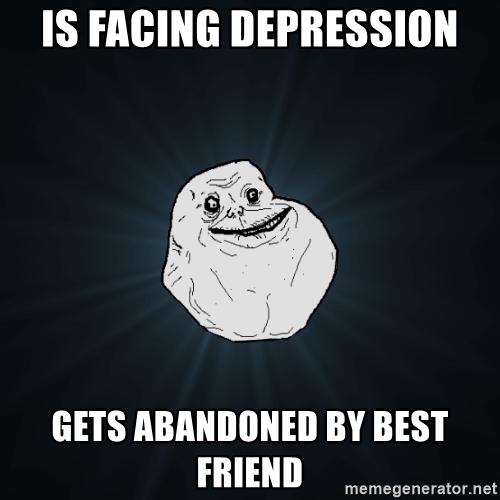
 My business card. The e-mail- and web address no longer work.
My business card. The e-mail- and web address no longer work.


